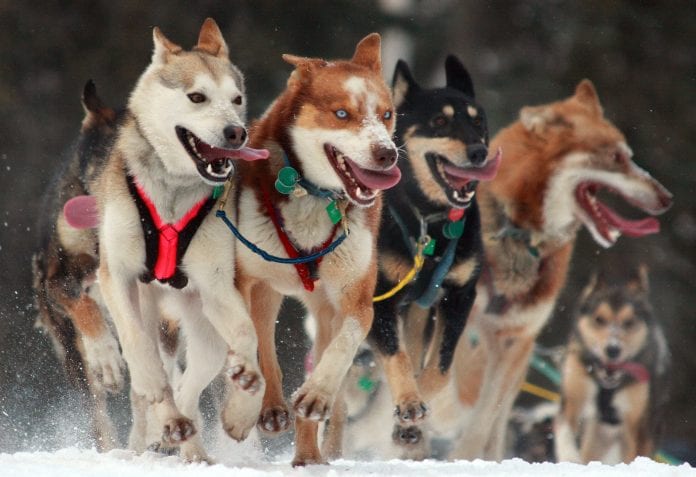A rule regarding canine drug use has been revised by the Iditarod Trail Committee’s board of directors, prompted by concerns that several dogs in a single 2017 musher’s team tested positive for a prohibited substance.
ITC said in a statement issued on Oct. 10 that the board determined that the ITC would likely not be to prove intent of the drugs in question.
The old rule could have been interpreted to require the ITC to have proof of intent to use the prohibited drug. The revised rule holds a musher strictly liable for any positive test, unless the musher can establish to the satisfaction of an independent review board by clear and convincing evidence that the positive results were from causes completely beyond their control.
ITC declined to identify the musher or drugs involved in the 2017 race incident.
Rule 39 on drug use says that no oral or topical drug that may suppress signs of illness or injury may be used on a dog. These include no injectable or other drugs or other artificial means are allowed to drive a dog or cause a dog to perform beyond its natural ability.
Prohibited drugs include anabolic steroids, analgesics, anesthetics, antihistamines, bronchodilators, cough suppressants, diuretics and more.
Mushers found to be responsible, either directly or indirectly, for tampering with another musher’s dogs, food, snacks or supplies or in any other manner that effects results of drug testing of another musher’s dogs would be subject to disqualification and/or a ban from the race.
Iditarod’s media contact Chas St. George and chief race veterinarian Stu Nelson were unavailable for comment.















